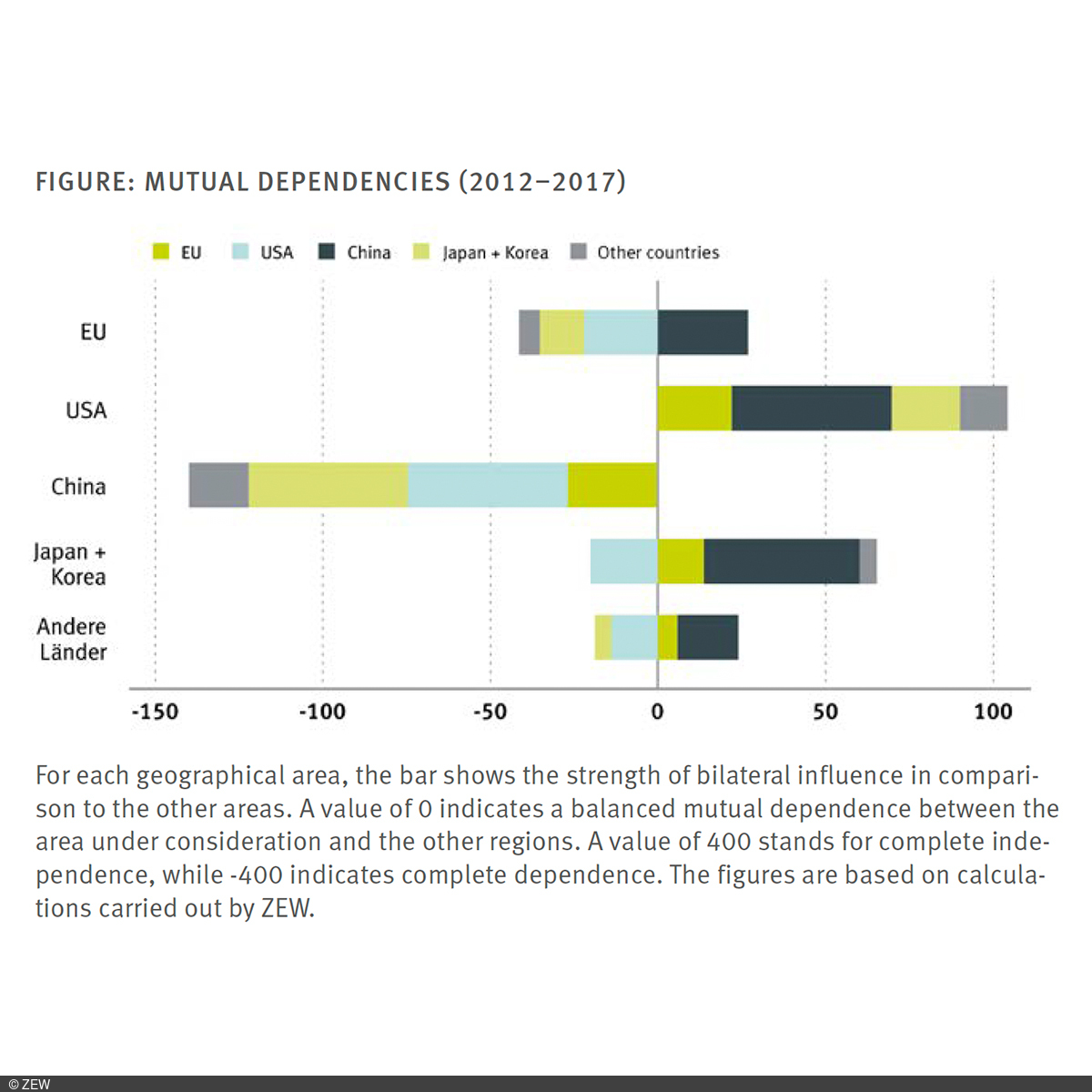EU Sovereignty: Strengthen Resilience and Supply Security
Europe Is Vulnerable
Concerns about energy supply bottlenecks and reduced oil imports as a result of Russia’s war of aggression have made Europe’s energy dependence abundantly clear. The potential supply crisis has been averted through alternative sources of oil and gas in combination with the expansion of renewables and measures to promote energy savings. Nevertheless, Europe generally and Germany specifically are dependent on non-EU countries not only for critical raw materials but also for advanced technologies.
Critical materials come from just a few countries
The green and digital transformations require large amounts of critical raw materials. Demand for these materials is on the rise. Furthermore, these materials are mined and processed in a limited number of countries. Europe’s reliance on imports in this area poses risks. Limited sources of supply can lead to high and occasionally volatile prices. There are also fears that countries may deny access to critical raw materials to exert pressure on European countries. In order to reduce dependence on critical raw materials, investments are needed along the entire value chain – including in mining, processing, and recycling. The EU needs to take a more co-ordinated approach to these investments. The European Critical Raw Materials Act, which came into force in May 2024, represents an important step in this regard.
In addition to critical raw materials, the EU is also dependent on other countries in the area of advanced technologies. A prime example is the semiconductor industry. Chips are used in all digital products and are thus crucially important not only for the digital transformation, but also for the green transformation. The EU has a market share of around 10 per cent, making it heavily dependent on imports from third countries. There have been repeated bottlenecks in recent years, in part because the semiconductor industry is dominated by a few large players. The European Chips Act has the goal of doubling the EU's market share in semiconductors to 20 per cent by 2030. However, the EU also depends on foreign companies for other advanced technologies, including processors for artificial intelligence, cloud services, and quantum computing.
In the domain of technology, Europe’s sovereignty is under threat or Europe is dependent on third countries
Technologically, Europe is closely intertwined with other countries. International cooperation is desirable as it promotes innovation and technological progress. However, interdependence can also jeopardise technological sovereignty if it leads to a one-sided dependence on third countries. An analysis of cited patents in the literature shows that only the US has bilateral technological independence. Europe, by contrast, is technologically dependent in several respects on other countries, including in particular the US. This is illustrated by the figure below. (For methodological reasons, the data only cover the period up to 2017.) In view of China’s accelerated technological development, it is important to ensure that Europe’s state of dependence in this area does not worsen.
Supply risks have increased
During the pandemic, interruptions to production significantly impaired supply chains for consumer goods in Europe. Extreme weather events – which have become increasingly frequent due to climate change – have caused additional disruptions to production and distribution. What is more, wars and other geopolitical tensions have jeopardised security of supply and have encouraged protectionist measures, as evidenced by Donald Trump’s threat to impose tariffs on Canada, Mexico, and Europe.
Recommendations
Address Security of Supply at the EU Level
Implement European regulations with resolve
The European Critical Raw Materials Act defines targets for European capacities along the entire value chain. Swiftly implementing this regulation will strengthen the strategic autonomy of Germany and Europe. A central element in the regulation is the diversification of supply chains. Mutual dependencies can reduce the risk of economic blackmail, while new free trade agreements can reduce dependence on a few countries for the supply of raw materials.
A coordinated European approach is essential. Joint procurement – for example, based on the EU Critical Raw Materials Platform proposed in the Draghi report – can coordinate the needs of countries and strengthen the EU's negotiating power with third countries. Targeted investments are necessary to cover the rapidly increasing demand for critical raw materials in the coming years. For example, some raw materials can be extracted in the EU and others can be reutilised through recycling. In addition, technical innovation can reduce the demand for critical raw materials, thus enhancing security of supply. The German government should advocate a joint approach at the EU level.
Create a European authority for monitoring security of supply
Currently, systematic surveys of actions being taken by countries to secure their supply chains are lacking. Specifically: to what extent are diversification and stockpiling efforts sufficient to guarantee security of supply in crisis situations? “Stress tests” based on those used in the banking sector could be an effective tool for identifying geopolitical risks and analysing security of supply shortcomings. A European authority charged with monitoring security of supply could play a central role in this regard. Its task would be to collect and provide data on supply chains, develop appropriate stress tests, and draw up concrete action recommendations for strengthening security of supply in Europe.
Scientific Contact


